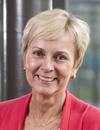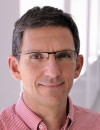08:00 | Registration |
|
Opening of the Stem Cells Drug Discovery Conference |
| Session Chair: Stephen Minger, Director, SLM Blue Skies Innovations, Ltd, United Kingdom |
| |
09:00 | Stem Cells In Drug Discovery – Progress and Challenges
Devyn Smith, Chief Operating Officer, Sigilon, United States of America
How can stem cells enable drug discovery? |
09:30 | |
10:15 | QC and Assay Development for Product Safety Testing Using Pluripotent Stem Cell Based Systems
Glyn Stacey, Principal Scientist and Head of Cell Biology, National Institute for Biological Standards and Control (NIBSC), United Kingdom
The development of assays for product safety testing based on human pluripotent stem cell lines requires careful evaluation of the starting cell line and qualification of the protocol to deliver the final cells for testing. In the is presentation will consider experiences in addressing these issues in the Seurat-1 EC/Colipa funded programme and new initiatives in the development of best practice for stem cell culture and assay development. |
10:45 | Coffee & Networking in Exhibition Hall |
11:15 | Oncolytic Targets Identified by Genetically Engineered hNSCs in a Rodent Model of Spinal Cord Glioma
Yang Teng, Associate Professor, Harvard Medical School, United States of America
We have investigated the oncolytic effect of genetically engineered hNSCs in a newly validated rodent model of intramedullary spinal cord gliomas (ISCG). Our findings demonstrate a stem cell-based multimodal approach to developing targeted glioma treatments following recovery neurobiology principles.
|
11:45 | Collaborative Phenotyping at King’s College London: Hipsci and the Stem Cell Hotel
Davide Danovi, Director, Cell Phenotyping Platform, Kings College London, United Kingdom
- Using relevant cells for high content analysis
- HipSci: diverse constituents in genomics, proteomics, cell biology and clinical genetics for a national iPS cell resource to carry out cellular genetic studies.
- The Stem Cell Hotel: building a dedicated space for collaborative phenotyping within the premises of the Centre for Stem Cells & Regenerative Medicine at KCL. |
12:15 | Discovery of Regenerative Drugs That Modulate Endogenous Progenitor Cells
Jey Jeyakumar, Principal Scientist & Group Leader, Plasticell & Progenitor Therapeutics, United Kingdom
An overview of the applications of two validated technologies CombiCult® and ProScreen™ on the discovery of small molecule regenerative drugs for osteoarthritis, multiple sclerosis and muscular dystrophy - an open innovation partnership with GSK, will be presented.
|
12:45 | Lunch & Networking in Exhibition Hall |
13:00 | Poster Viewing Session |
14:30 |  Technology Spotlight: Technology Spotlight:
Human iPSC-derived Tissues as Novel Translational Models for Drug Discovery and Screening
Mark Hewitson, Account Manager, Cellular Dynamics Intl
Human cell types differentiated from induced pluripotent stem cells (iPSCs) offer an attractive source of cellular material for both toxicity screening and drug discovery because of the biologically relevant systems they can represent in vitro. The iPSC technology is a key element for modeling human biology in a dish, which is otherwise difficult to explore using conventional cell lines, primary cells, or animal models. Our approach is to generate iPSC-derived cell types with high quality, purity, and unlimited quantities, design relevant assays with cells derived from apparently healthy donors, and develop disease models using environmental stimuli or disease-specific, patient-derived cells. Current efforts are aimed at generating large iPSC clone banks from diverse diseased backgrounds that will serve to dramatically expand access to cell models offering new tools and opportunities for phenotypic drug discovery.
|
14:45 | High Content Screening With hiPSC-Derived Neurons
Amanda Cobos-Correa, Lab Head Screening Sciences, Novartis Institutes for Biomedical Research, Switzerland
In my talk I will present the large-scale generation of neuronal progenitors derived from Fragile X patients and their use to develop a high-content imaging assay to run a HTS to identify compounds counteracting the epigenetic gene silencing in Fragile X syndrome. |
15:15 | Neuromesodermal Progenitors: Tracing the Origins of Neuromuscular Diseases
Mina Gouti, Group Leader, Max-Delbrück Center for Molecular Medicine, Germany
Generation of spinal cord neurons and muscles from pluripotent stem cells with precise positional identity is crucial for neuromuscular disease modeling. I will focus on the in vitro generation of a neuromesodermal (NMP) progenitor population from pluripotent stem cells, an advancement that gives unprecedented access to the development of new models to study neuromuscular diseases. |
15:45 | Coffee & Networking in Exhibition Hall |
16:15 | Medicinal Chemistry In Regenerative Medicine: Discovery Of In Vivo-Active Small Molecule Modulators Of Endogenous Stem Cells
Angela Russell, Professor, University of Oxford, United Kingdom
The talk will give a brief overview of the area, outline how my group became involved in the field and cover contributions we have made, including the expansion of pluripotent and multipotent stem cells and how we are aiming to translate our work to the clinic for regenerative therapies. As a representative example the discovery process for new small molecule modulators to induce the differentiation of neural stem cells both in vitro and directly in vivo following systemic administration will be described. |
16:45 | Modelling Human Gastrulation: A Platform for Directing Pluripotent Stem Cell Differentiation to Clinically Relevant Cells
Roger Pedersen, Professor, University of Cambridge, United Kingdom
I will discuss how lineage decisions of human stem cells model gastrulation and thereby achieve growth factor-induced differentiation to specific cell types; how transcription factor-based forward programming provides an alternative strategy for differentiation of clinically relevant cells; and how interspecies post-implantation chimeras can be used to functionally validate human pluripotent stem cells for use in regenerative medicine. |
17:15 | Cancelled - 3D Human Liver Models Generated from iPSCs for Disease Modelling and Therapy
Tamir Rashid, MRC Clinician Scientist Fellow, King's College London, United Kingdom
|
17:45 | Drinks Reception in Exhibition Hall |
20:00 | Conference Dinner in Hinxton Hall |
22:00 | End of Day 1 |



.gif)